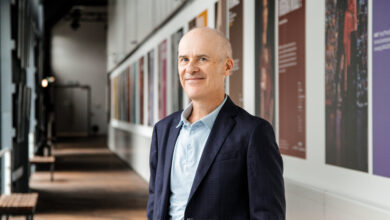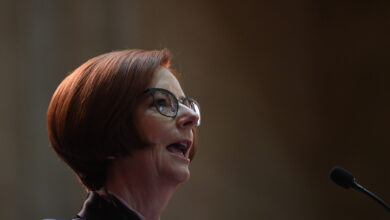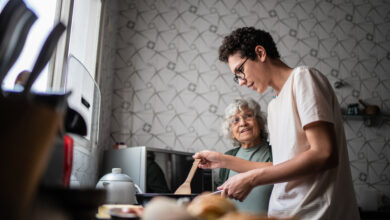Shining a spotlight on women leaders in aged care: Nicky Howe

Women make up the absolute majority of the healthcare workforce in Australia. It is not even close.
At last check, of the 366,000-odd aged care workers, nearly nine in 10 workers in aged care were female (87 per cent of those in residential care, and 89 per cent of those in home care or home support).
In the broader healthcare space, women outnumber men by nearly three to one, with a total of 440,000 women and 146,000 men registered and employed in Australia’s health workforce.
But still too few women rise to the upper management echelons in these organisations.
A study by US consultancy firm McKinsey found that in the US for entry level healthcare positions women outnumber men by a 66 per cent to 34 per cent split. By the time it gets to senior management level men make up 51 per cent of the positions, and by executive level men make up 70 per cent of positions.
In Australia, women only hold 14.6 per cent of chair positions and 28.1 per cent of directorships, and represent 18.3 per cent of CEOs and 32.5 per cent of key management personnel.
Over the next six weeks, Aged Care Insite will profile six women who have firmly established themselves in the aged care industry.
From educators to chief executives, these stories will uncover how these women have navigated the traditional barriers that affect the advancement of women to leadership.
Helping to get more women on board: Dr Nicky Howe
When Dr Nicky Howe embarked on her role as chief executive of non-profit SouthCare, one of the first things she noticed was the lack of diverse, young talent represented on her board.
It was 11 years ago, and the author, leadership coach and business leader envisioned a more balanced group of people helping to push forward the big-ticket decisions in the industry.
“Males hold the positions of power and authority in large age care organisations, and I think that the sector has been slow to embrace diversity on their boards,” she said.
“But I've certainly seen, over the last 10 years, a realisation that we do need to have diversity on our boards, and certainly in our senior leadership positions.”
Together with young entrepreneur and speaker Alicia Curtis, Nicky went on to establish The Engaging Young Leaders on Aged Care and Community Boards Program in 2013.
The project has helped to inject over 120 young professionals onto boards and committees around Australia.
“What we noticed was that aged care was slow on the take-up, whereas some of the community service organisations that we were engaging with were quite keen on the idea,” Nicky told Aged Care Insite.
“There's a perception that working in the aged care industry is all about old people and bedpans and nursing homes.
“Whereas I think it's great to showcase the diversity of roles in the sector, we do need to promote the women who are in senior and in diverse positions.”
Starting out as an enrolled nurse at the Royal Perth Hospital, Nicky launched her transition into business after entering university at 31.
After gaining a doctorate in business administration, Nicky went on to publish two books and has amassed over 25 years of experience in senior management across the education, health and welfare sectors.
Being an avid learner, she says, is one of the greatest attributes that has helped to accelerate her career.
“I also think it's about getting clear about what your strengths are and playing to those strengths so that you get better and better at what you're really good at.
“So for me, over this 10 year span, it's that I've got to be a constant learner in trying to get across what I don't know.”
Today, Nicky continues to focus her efforts on helping young women reach higher levels within the sector.
Over the next three years, her co-founded leadership project is set to offer specialised programs designed for young women who identify as Indigenous and Torres Strait Islander, LGBTQ or as having a disability.
Making more young women more visible in these positions will be key to attracting and retaining the future workforce, she says.
“A lot of women in the sector are not clinical, but I think that there's that perception that they are, that it's nurses and its carers.
“I think about just my organisation, my HR staff are women, my marketing team are women, and my senior manager in aged care is a woman.
“So I think we’ve got to showcase those people.”
The pipeline for women executives to fill corporate board seats in aged care is challenging, Nicky says, but with enough perseverance will vastly improve over time.
“I had a CEO ring me up and say to me, ‘Nicky, what you're asking me to do is ask my board if they'll put a young person on the board. Are you crazy?’
“But interestingly enough, four years after that conversation he rang me and he said that he wanted to be part of this.
“So, I think you always face resistance in the workplace, but you've just got to keep going, you have to be persistent and resilient.”
Email: [email protected]





